Buying a house was the last thing on Anna Lysick’s mind.
Fresh out of university with a good job at a design agency, she moved into a private rented flat in Manchester with her boyfriend and two cats. They had friends, they went out a few times a month. Life was good. Buying a house? Sure, maybe one day.
“I was fearless and happy. If I needed shoes I would buy them – it wasn’t in my head to save up for a deposit,” she says. “It was just the happiness of finishing university. Young people just don’t have the same thinking as our mums and dads and grandparents, that owning a house is the most important thing.”
But now, three years on, reality is starting to bite.
Like millions of other people in their twenties and thirties, Lysick, 33, has realised she is trapped in an expensive and uncertain cycle of renting and doesn’t know if she will ever get out.

The national housing crisis in England is now so severe that homeownership has fallen 7% since 2003. About 63% of the population own their home, the same level as in 1986. Housesharing, people living with their parents, and homelessness are all on the rise.
News coverage may centre on the chronic housing shortage in London and the South East, with their streets of £1 million-plus family homes and blocks of “luxury” flats bought and left empty by offshore investors, but the problem is not only being felt in up-and-coming London suburbs such as Hackney or Brixton.
The place with the biggest drop in homeownership in the last 15 years, from 72% to 54%, is Lysick’s adopted home city of Manchester.
Twenty per cent of people in the Greater Manchester region rent privately; in 2003 it was just 6%. Renters like Lysick are far more likely to be spending more of their income on housing than mortgaged owners – for those on low and middle incomes, a bad situation is being made worse. Manchester is often cited by newspapers as a top spot for buy-to-let investors and other property speculators as the London market cools, and investors from China have invested heavily in the city’s new-build towers. A report from LendInvest, a property investment firm, last year found Manchester was the most profitable city for landlords. Yet for those living there, the story isn’t so rosy.
What does it mean to be the victim of a housing crisis in a city that’s supposed to be cheap to live in?
“We feel like buying an apartment is just something that people don’t do these days, unless you have rich parents or some sort of money from back home,” says Lysick, an interior designer and blogger, curled on her sofa in the two-bed flat.
“If you’re just a normal working-class person who finishes university and starts to rent, owning a house is just impossible."
Lysick’s neighbourhood, like much of the city, is an industrial graveyard where crumbling mills and factories are being turned into flats for young people to rent.
The sky outside her flat is dotted with cranes, and the streets hum with the matey chatter of builders and the whirr of construction.
“When you finish university," Lysick says, "you might meet someone and start a relationship and then start from scratch – but the rental price is so high that you can’t save.”
Businesses have been moving here for some years to escape high London rents and capitalise on lower wage demands. As one property agent has said: “You can get a lawyer in Manchester for half the price of London.”
Lysick, who's originally from Poland, got her degree in design from the University of Central Lancashire in 2013. She then got a junior job at a big design agency in Manchester and moved to a rented flat in nearby Hale.

Now self-employed, she’s tried her best to make her little flat homely. She even writes a blog about doing this, called Don’t Cramp My Style.
She’s been in her current place for three years. She pays £750 a month – about half the average rental price in London and slightly below the Manchester average.
So Manchester is cheap, isn’t it?
“Yeah, but the salaries are not the same,” she says, smiling. “I would say a designer in London would expect about £26,000 to £28,000, but here I was offered £15,000 as a junior designer, before becoming a middleweight on £17,000, rising to £18,000. It’s still a shocking salary for a middleweight designer.
“I go to a lot of events in London and everyone's like, ‘Oh yeah, so you’ve got loads of cheap houses,’ but I always say, ‘Not the houses I rent.' People in London who find out what I pay say that would be [the cost of] a room for them.
“I say, ‘Yeah, but tell me how much you earn’ – that’s the massive difference."
Lysick says she was offered a paid internship in London at £19,000 a year – more than she was earning as a professional designer at the time.
Until recently, she and her boyfriend were on a rolling six-month contract and paid £100 to their letting agent in fees every time it had to be renewed. That is, until she personally got in touch with the landlord and explained what the letting agent was doing. They are now on a 12-month deal.
Lysick admits to “previous bad habits” when it comes to money, but says that's normal for a young person who’s enjoying life. And the cycle of having money, buying food, paying bills, and paying down debt leaves her with little to save anyway.
“What are you going to do? Save up all your life so you can give something to your grandchild? Sometimes I feel ashamed that I am 33 years old and I can’t afford my own place – I’m only just able to pay off my student overdraft.”
She realises the precarious nature of her situation: “At any time they could send us a letter and that’s it, end of story, we have to move out. At the end of the day it’s not my property.
“[The landlord's] happy so far, he sees what I’m doing here, he’s happy to rent it out to me. But I still don’t have any guarantee for how long this is going to be for. He could still turn round and say, ‘You know what, I might want to sell it now because of property [price] rises.'”
Where does Lysick think she’ll be in five years?
“Hopefully I will be owning my own apartment. I’ve been doing blog posts myself about all the schemes that are available. … I’m looking at schemes where you save and the government puts in the rest. Even if it’s the most scruffy [one] ever, it will be my own."

She adds: “If you were asking my three years ago where I’d be in five years, I’d have had so many dreams, I’d have been owning a boat. But living in reality, it’s not as easy as you think.”
Her testimony is backed up by experts and campaigners who say the human cost of the spiralling property values in the area is very real.
Lindsay Judge, senior policy analyst at the Resolution Foundation, which tracks the economic welfare of low-income families, tells BuzzFeed News: “Traditionally we see the housing crisis as something centred on London and the South East, but many northern cities like Manchester have experienced some of the largest falls in homeownership since the mid-2000s. With house prices outpacing earnings across in the North West, the challenge of saving for a deposit has grown ever bigger.”
Graeme Brown, interim chief executive at housing charity Shelter, says Lysick’s story is far from unique: “House prices are so out of step with average wages across much of Greater Manchester that people are increasingly being priced out of homeownership and are renting instead.
“But the trouble with renting long-term is that it’s not fit for purpose, it’s expensive and unstable. Every day at Shelter Manchester we speak to renters struggling with short contracts and sudden rent hikes. As a result, many are living from one paycheque to the next without any hope of planning or saving for the future.”
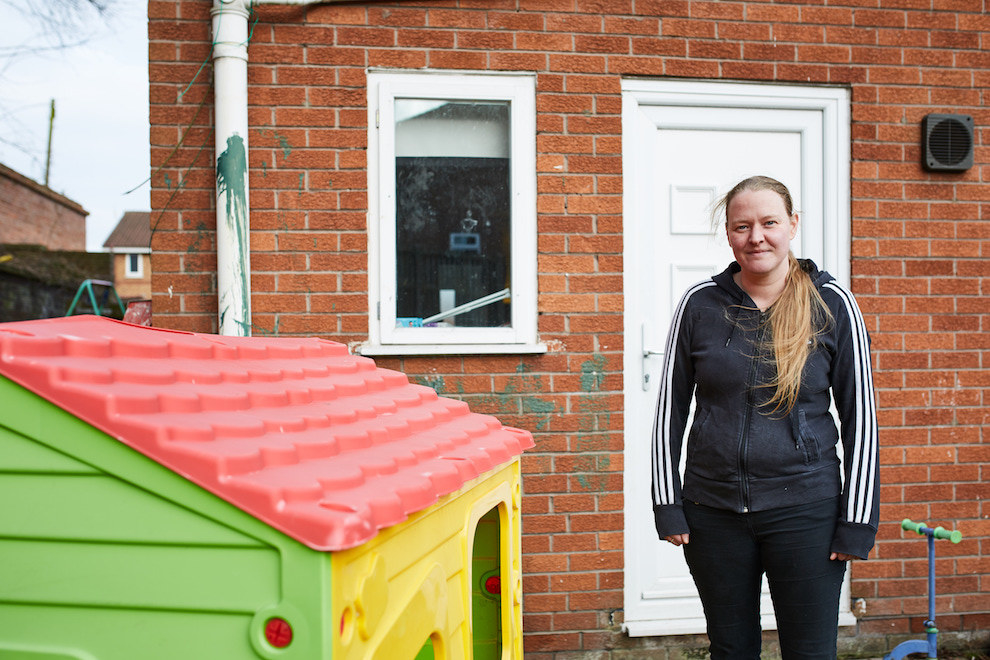
On the other side of town, in the traditionally working-class district of Ancoats, now in the shadow of Manchester City’s Etihad stadium, there's a different family with a similar story.
The skyline here was once full of chimneys, factories, and mills, but is now dominated by new-build flats. While the average price paid for a house here is about £169,000, there are one-bed flats for sale in new developments for £250,000, and less than a mile away a penthouse suite with three bedrooms and two bathrooms at the top of a new skyscraper is on the market at £700,000.
Louisa Foord will not be putting in an offer.
“Yes, there’s a housing crisis in Manchester,” she says straight away after hearing the premise of this article. “I’m living it.”
She’s been in her three-bed housing association house for a year after spending the best of five years trying to get somewhere more suitable for her three boys, aged 13, 12, and 5.
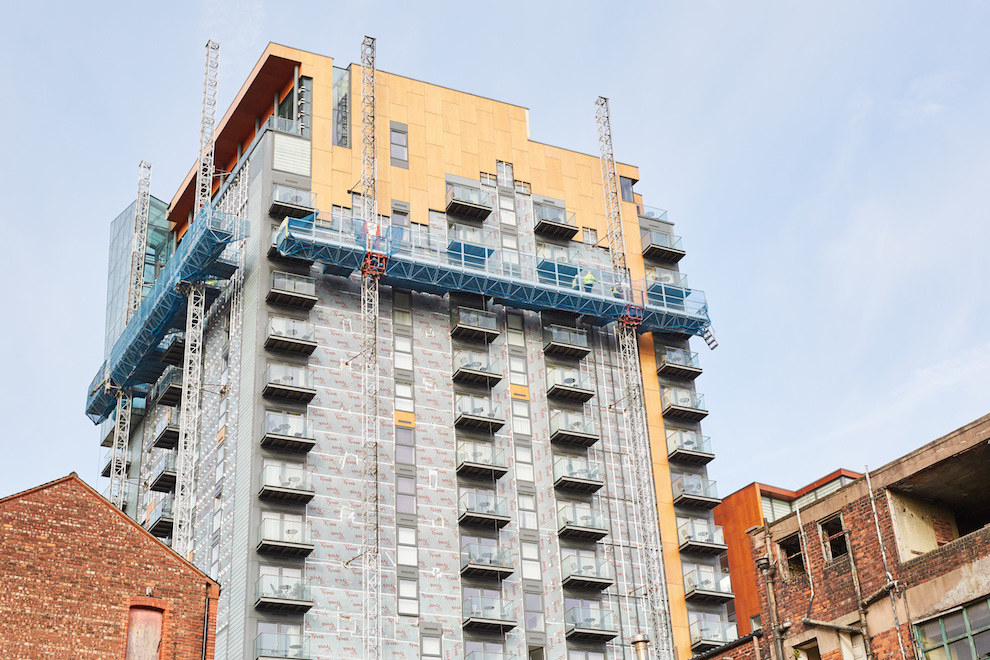
Foord and her partner Tony could have applied to buy their previous place through right-to-buy legislation, which was extended to allow housing association tenants in some circumstances to put in an offer.
But because both parents are on zero-hours contracts, working at a café in the same museum in the city, that means no eligibility for right-to-buy schemes, no mortgage deals. So they moved to a new, bigger rented place instead.
Their current home is narrow and slightly optimistic in its stated aim of housing a family of five. There have been serious problems with black mould that have now been resolved with air vents but only after sustained complaints. This house has quadrupled in value to about £100,000 since 2000.
In between putting together a flatpack cabinet that will eventually house an impressive retro games console collection, Foord explains why her family is financially stuck.
“Tony’s been in his job for three and a half years and he’s still on a zero-hours contract," she says. "No one’s going to give you a mortgage, because that’s the way it works – everyone gets these contracts because they’re easier and cheaper for the employers.
“And when you’re not earning what you should be, you’re not saving up for a deposit. So you’re in limbo. And you’re still paying rent – that money is dead to us, it’s dead money.
“My friend bought her house and pays less than us on her mortgage. It’s so frustrating. We want to buy a house – we want the kids to have something when we’re not here any more. We want at least to leave them something. At moment it’s just 30 games consoles.”
The rent Foord pays is £580 a month. She expresses it as £145 a week, reflecting the week-to-week nature of the household’s finances.
Some people would call that affordable.
“It’s not. It’s not. Tony’s wages are about £330 [a week]. Out of that he’s got to pay the rent, the council tax, then the gas and the electric. I’ve got my wages now and that’s easing it a bit but then you’ve got to feed the kids and buy them things.
“I feel bad because we’ve not been able to take them on holiday. If we had a mortgage, we’d be like, ‘We’ve got to pay the house off, mate.’ But now it’s like, ‘I’m just going to throw some money down the drain this week, sorry mate.'
“God knows how long it’s been. I know holidays are a luxury, but it would be nice to go away for a weekend with them. Just can’t afford it.”
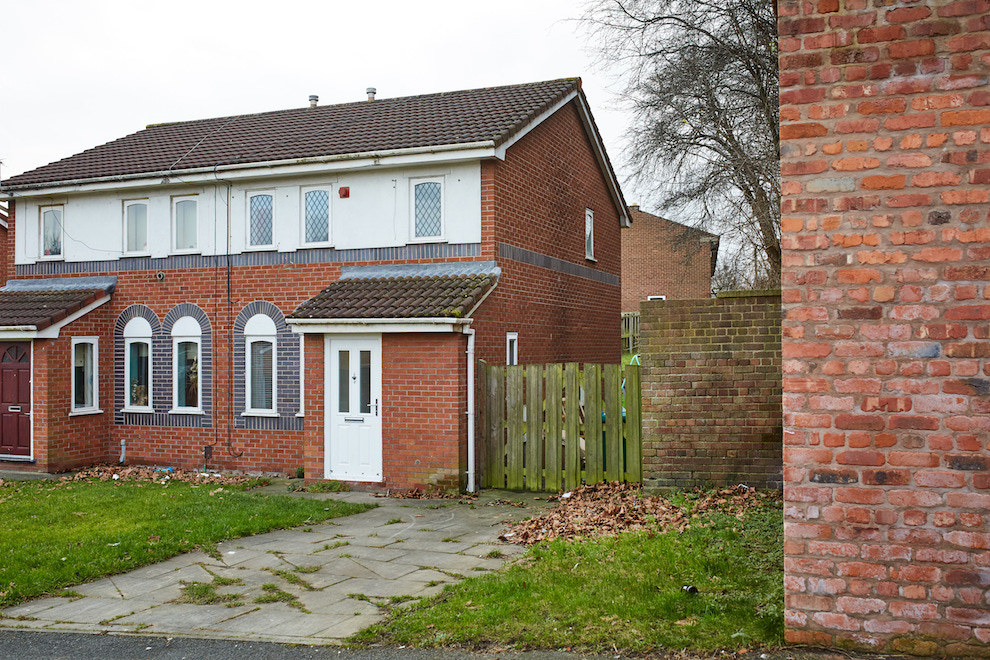
But compared to the much-reported inflation of housing costs in London and the South East, isn’t she still getting a pretty good deal?
“It’s a different style of life there, it’s all relative,” she says. “We’d think it was cheap in Wales but everyone there thinks it’s expensive. We’d think it was expensive in London, but there will be people who think it’s alright.”
In a previous job her monthly wage was about £850 to £900, but her childcare fees were about £1,100, including a full-time nursery for her youngest and before- and after-school clubs for the older ones.
“I thought, I might as well just stay at home. It’s pointless.”
She’s now doing a bookkeeping course alongside working at the café, however, and hopes to work for a family firm from home to earn some extra cash.
Foord worries about the future and that she has no assets to fall back on.
“All you’re paying for is a roof and four walls, but you’re not gaining anything from it. It’s daft. I’d love to buy a house, because then you have that security.
“You obviously have to pay the mortgage, but you have some form of safety net – so that if anything does happen, if you’re right in the shit, you can borrow against or whatever. You’ve got nothing when you’re renting. It’s an impossible situation.”
Prices here have quadrupled in the last 10 years – Ancoats and neighbouring Beswick have both long been associated with negative headlines about crime, disorder, and social disharmony.
Then the Commonwealth Games in 2002 changed things. A brand-new stadium – now called the Etihad – and improved local infrastructure, including the tram network, helped to change Manchester’s image in the years following the 1997 IRA bomb that devastated and changed the face of the city centre.
But the one- and two-bed flats popping up here are not necessarily designed for local working-class families. The target market is young, successful professionals who see property as the gateway to a lifestyle, not as somewhere to raise children, and many of them use the same marketing imagery and language that has been in use in London for years.
Oxygen Tower, a forthcoming 31-storey building due for completion by the end of 2018, promises “345 stylish apartments, 12 townhouses, five star leisure and amenity facilities and sky gardens”. The amenities include a steam room, "three oxygenated swimming pools", and a jacuzzi.
There is a specialist estate agency that focuses purely on such properties, and even offers free translation for Arabic and Chinese would-be renters, buyers, or investors.
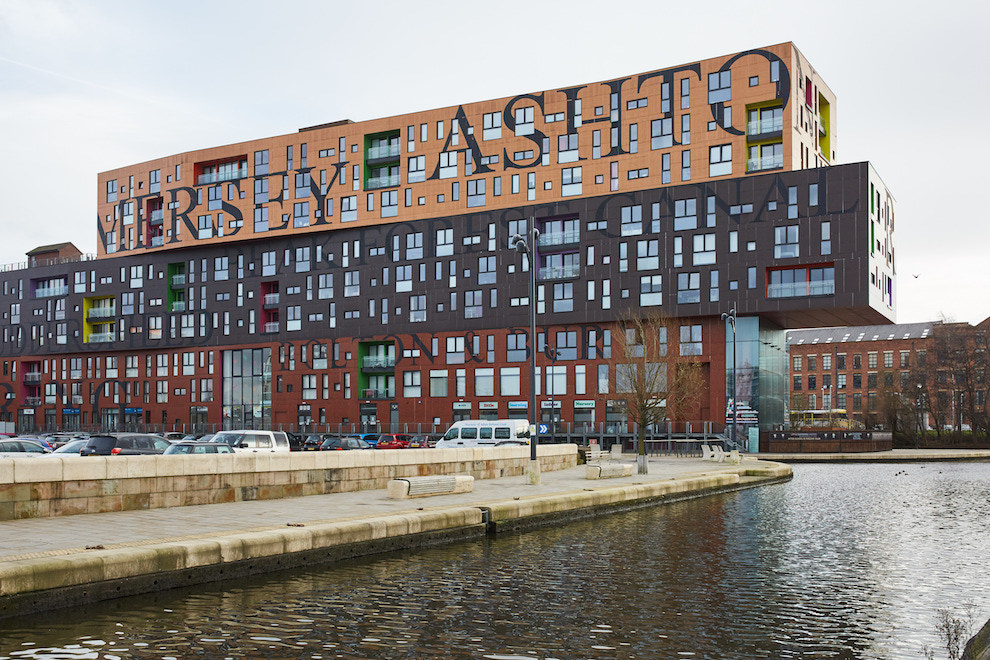
Foord’s verdict on the new wave of flats is not glowing.
“My little one got invited to a birthday in one of the apartments over there so we went over for the night, and they’re not that big. They’re cosy. Bedroom’s a decent size and it’s two bedrooms and a bath, but the living area went into the kitchen and it was tiny.”
In five years, Foord thinks she’ll be in a different house but has no idea if she’ll be renting or a homeowner. “You can’t tell what the future can hold. If I make more money from bookkeeping then I’ll just save, save, save.
“You just want to be able to get somewhere in life, make sure your kids grow up right, give them a good role model. You never know, might win the lottery.”
How did Manchester get to this point? As elsewhere in England, there are simply not enough houses. And in particular, not enough of the right sort in the right place.
“There has been a high level of development in Manchester, but it’s mostly apartments,” says Colin Robinson of the planning firm NLP, which works with housebuilders and local authorities. “That’s good in one respect because we’ve seen regeneration of brownfield sites, the complete transformation of the city centre, which has changed people’s perceptions."
But he also blames the boom in luxury one- and two-bed apartments for the sharp drop in homeownership: “They’re far more likely to be rented out than three- or four-bed detached houses.”
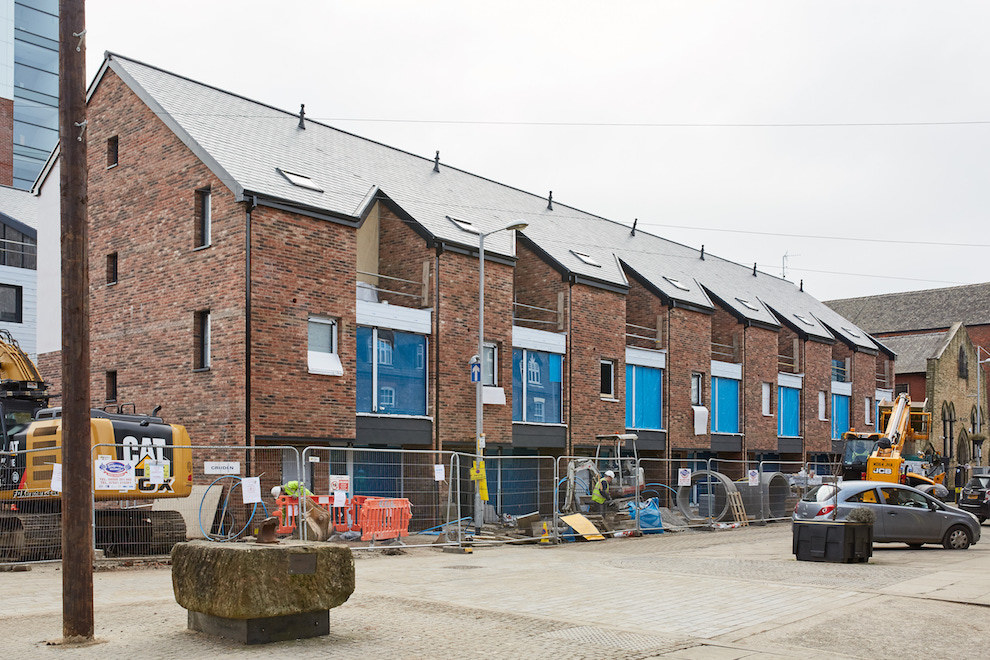
The success of Manchester as a regional business centre – annual commercial property investment passed the £1 billion mark in 2015 – has advanced faster than the city’s ability to house the people working there.
And the efforts to house young workers, undeniably crucial to the economy, may have come at the expense of building homes for slightly older workers with families, Robinson says.
“Whilst we’re not against high-density apartment schemes," he says, "there’s a real danger that it’s overly concentrated on those types of projects. We feel there needs to be a broader provision, with green belt releases as well as brownfield sites.
“If you’re a family with three kids you’re not going to want to live in an apartment in east Manchester, you want to live in a house in the suburbs, in a semi or detached house. It’s great in your twenties, but not when you start a family.”
Manchester’s answer to its problems is The Spatial Framework: an ambitious proposal from the 10 local authorities that make up Greater Manchester to set out housing policy for the next 20 years. It has identified sites for an extra 227,000 homes, including some green belt land on the fringes of the city.
While it is ambitious, it’s lacking details on how many of the new homes will be affordable. On some proposed schemes there is no mention of “affordable” housing at all, leading some to wonder if the new homes will be the very “luxury” homes most Mancunians can’t afford.
Andrew Gwynne, the Labour MP for the Denton and Reddish constituency in the southeast of the city, raised this in parliament in December: “For perfectly good reasons, all 10 local councils want to use the plan as an opportunity to increase their council tax base.
“That means that it will predominantly be executive homes that are developed. Is the real risk not that we end up crashing the housing market in Greater Manchester because we have an oversupply of the wrong kind of homes?”
The wider problem of income is not going away. House prices are growing far faster than the average weekly wage in the North West and elsewhere, and this is set to continue.
Average prices in London are among the highest in Europe. At the current rate of growth, 1 in 4 London homes will be worth more than £1 million by 2030.
Manchester is a long way away from that kind of price inflation – the lack of credit and capital among younger would-be buyers, the current level of stamp duty, the looming uncertainty over Brexit, and the difference in regional economic growth all mean it probably won’t happen here the way it has in London.
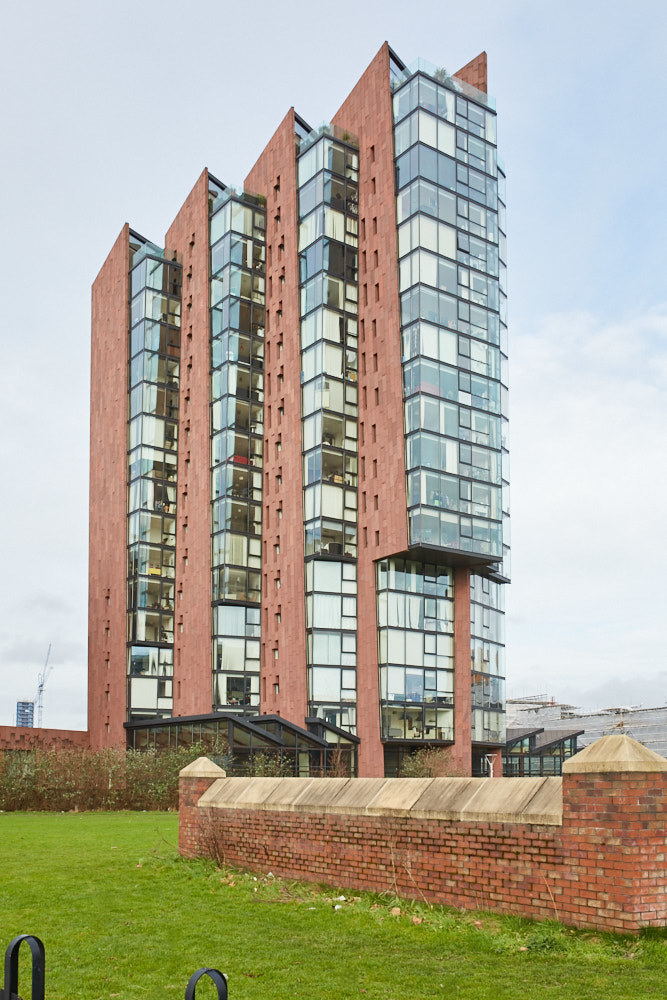
But as Lysick and Foord know only too well, the city's own housing crisis is real enough.
Jon Lord, chair of the Greater Manchester Housing Providers partnership, which comprises 27 housing associations that manage more than 250,000 homes in the region, says action is needed now.
He points out that the average house price in Manchester, £169,000, is nearly seven times the average annual household income.
“Based on those figures, to afford an 80% mortgage, a household currently needs an income of £38,833, or £63,886 if you’re looking to buy a home in Trafford [one of the most affluent Greater Manchester boroughs],” he says.
“Then there’s the issue of deposits. A 20% deposit on an average house in the area is now just shy of £34,000. People would need to save around £733 a month from now until 2021 to pull together that kind of deposit."
The city’s housing associations have built more than 8,000 homes in the last five years and they would like to build another 12,000 by 2021. But they’re looking to whoever wins the mayoral race in May to back their plan and provide the right support (and land).
Graeme Brown of Shelter says it’s important the mayoral candidates, which include former shadow home secretary Andy Burnham, “show they’re willing to champion the rights of ordinary renters”.
“The new mayor can call on the government to introduce longer rental contracts for all renters who need them and build more homes that people on low to average incomes can actually afford to live in,” he says. “This could make a big difference to those left behind by the housing crisis in Manchester.”
Ultimately, while housing campaigners were largely disappointed by the government’s housing white paper earlier this month, whoever becomes mayor will have powers to change things. And other cities that are looking to wield more devolved powers and are suffering their own housing crises will be watching to see how successful they are.

